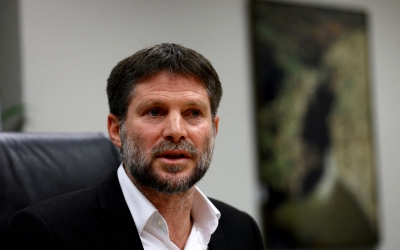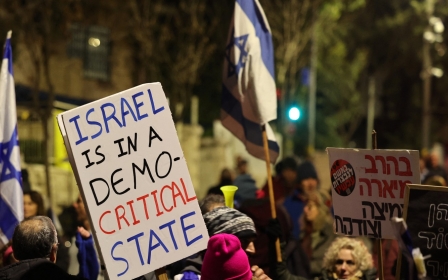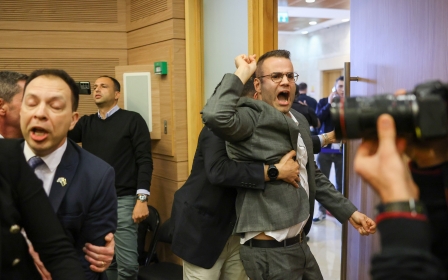Israel: Knesset committee approves key judicial overhaul bills

An Israeli parliament committee on Wednesday approved the restriction of the Supreme Court's power to override laws, a significant part of the government's plan to overhaul the judiciary.
The decision by the Knesset's Constitution, Law and Justice Committee gives the Supreme Court judges the ability to overturn unconstitutional laws with only 12 out of 15 votes in favour. The original bill required the approval of all 15 justices.
Currently, the Supreme Court can disqualify government legislation if it contradicts Israel's 13 basic laws, particularly the Human Dignity and Liberty Basic Law. Israel's basic laws are intended to be part of the future constitution, which does not yet exist.
The committee also approved an "override clause", which will allow parliament members to reenact a law disqualified by the Supreme Court with a simple majority of 61 MPs out of 120, essentially stripping the court of its ability to revoke unconstitutional laws.
The committee's opposition members boycotted the vote, which was carried through by nine MPs who voted in favour.
The bills will now go through three readings at the Knesset, before a final vote.
Mass protests have taken place over the past few weeks against the government's plans to weaken the judiciary. The legal overhaul has also sparked criticism and warnings by legal experts, economists, business leaders and rare protests by army reservists.
On Wednesday, Israelis staged protests in Tel Aviv, blocking the highway into Jerusalem and disrupting traffic for around an hour. Israeli media reported clashes between protesters and police, with several people arrested.
Police forces also used water cannons and stun grenades to disperse the crowd in the city centre.
Following the clashes, far-right National Security Minister Itamar Ben-Gvir released a statement, labelling the protesters "anarchists" and said: "The police must use all available means at their disposal to maintain public order."
Middle East Eye delivers independent and unrivalled coverage and analysis of the Middle East, North Africa and beyond. To learn more about republishing this content and the associated fees, please fill out this form. More about MEE can be found here.





